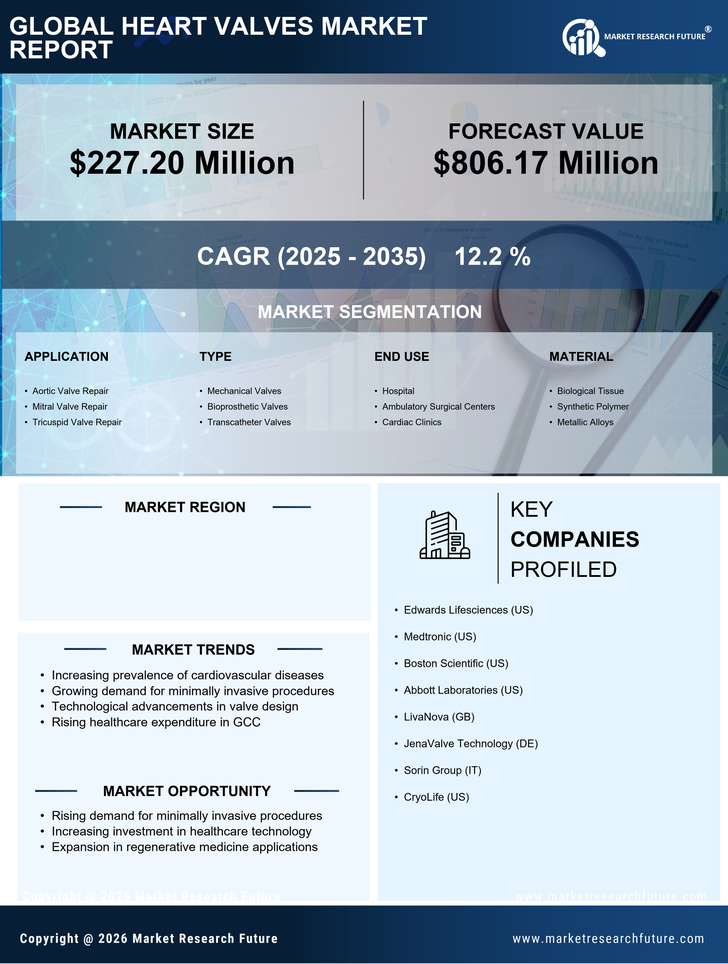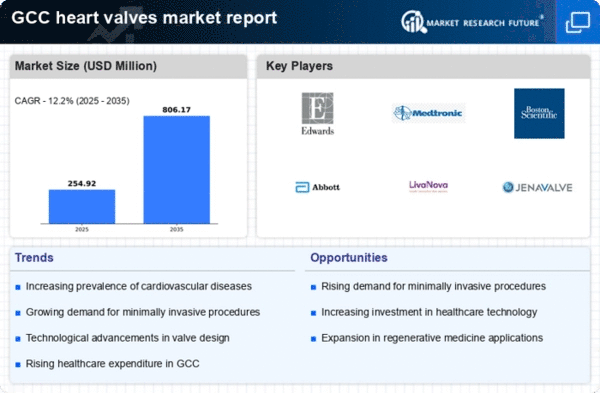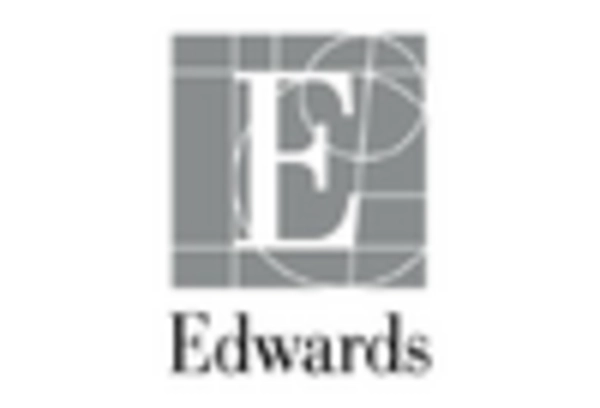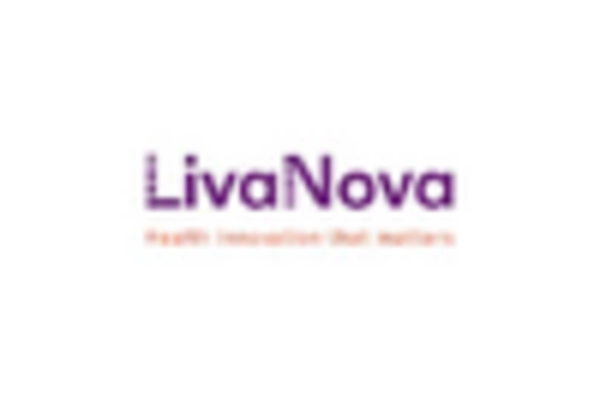Increasing Aging Population
The heart valves market is experiencing growth due to the increasing aging population in the GCC region. As individuals age, the prevalence of heart-related ailments rises, leading to a higher demand for heart valve replacements and repairs. According to recent statistics, the population aged 65 and above in GCC countries is projected to reach 10% by 2030. This demographic shift necessitates advanced medical interventions, including heart valve surgeries, thereby driving the heart valves market. Furthermore, older adults often require more complex procedures, which may lead to increased healthcare spending. The heart valves market must adapt to these demographic changes by innovating and providing solutions tailored to the needs of older patients.
Rising Healthcare Expenditure
Healthcare expenditure in the GCC region is on the rise, which positively impacts the heart valves market. Governments are investing heavily in healthcare infrastructure, aiming to enhance the quality of medical services. For instance, healthcare spending in the GCC is expected to reach $104 billion by 2025, reflecting a growth rate of approximately 7% annually. This increase in funding allows for the procurement of advanced medical technologies, including heart valve devices. As hospitals and clinics upgrade their facilities, the demand for innovative heart valve solutions is likely to surge. The heart valves market stands to benefit from this trend, as healthcare providers seek to offer the latest treatments to their patients.
Government Initiatives and Regulations
Government initiatives and regulations play a crucial role in shaping the heart valves market in the GCC. Regulatory bodies are increasingly focusing on ensuring the safety and efficacy of medical devices, including heart valves. This regulatory environment encourages manufacturers to adhere to high standards, fostering innovation and quality in the heart valves market. Additionally, government support for research and development initiatives can lead to the introduction of new technologies and products. As regulations evolve, the heart valves market is likely to see a surge in compliance-driven innovations, ultimately benefiting patients and healthcare providers alike.
Growing Awareness of Cardiovascular Health
There is a growing awareness of cardiovascular health among the population in the GCC, which is influencing the heart valves market. Public health campaigns and educational initiatives are encouraging individuals to prioritize heart health, leading to earlier diagnosis and treatment of heart conditions. This heightened awareness is likely to result in an increase in the number of patients seeking medical intervention for valve-related issues. As a consequence, healthcare providers are expected to expand their offerings in the heart valves market to meet this rising demand. The proactive approach to cardiovascular health may also lead to improved patient outcomes and reduced healthcare costs in the long run.
Technological Innovations in Medical Devices
Technological innovations are transforming the heart valves market, particularly in the GCC region. The introduction of minimally invasive surgical techniques and advanced materials has revolutionized heart valve procedures. For example, transcatheter aortic valve replacement (TAVR) has gained popularity due to its reduced recovery time and lower risk of complications. The heart valves market is witnessing a shift towards these innovative solutions, which not only improve patient outcomes but also reduce overall healthcare costs. As manufacturers invest in research and development, the availability of cutting-edge heart valve products is expected to increase, further stimulating market growth.

















